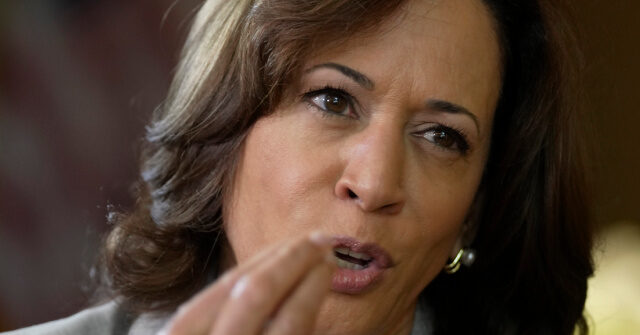During a recent town hall hosted by CNN, Vice President Kamala Harris, a candidate for the 2024 Democratic presidential nomination, addressed questions regarding the reform of the Supreme Court. When asked directly about the possibility of expanding the court to 12 justices—thereby assigning each justice a specific circuit court, with the chief justice providing supplementary assistance—Harris responded by acknowledging the current erosion of public confidence in the Supreme Court. She attributed this decline to the behaviors and rulings of certain justices, particularly referencing the contentious Dobbs decision, which overturned longstanding precedents related to women’s reproductive rights. Harris emphasized her belief in the necessity of reforming the court, indicating a willingness to explore various potential solutions to restore public trust.
Harris’s remarks came at a crucial time, as public sentiment towards the Supreme Court has become increasingly polarized, particularly following decisions perceived as partisan or outside the scope of judicial neutrality. The Dobbs decision, which eliminated the constitutional right to abortion that had been upheld for 50 years, stands as a pivotal moment for many voters. The vice president’s acknowledgment of the frustrations and concerns voiced by American citizens underscores a growing urgency among Democratic leaders to reassess the court’s structure and functionality. By framing the debate around the potential for reform, Harris seeks to engage in constructive discourse about how to better align the judiciary with contemporary values and expectations.
Additionally, Harris’s comments provide a strategic contrast to her political opposition, particularly former President Donald Trump. By critiquing Trump’s tenure and the implications of his judicial appointments, she seeks to delineate her vision for a more equitable Supreme Court. This approach not only appeals to Democratic primary voters who are concerned about the court’s trajectory under Republican influence but also positions Harris as a defender of women’s rights and democratic principles. It highlights her commitment to addressing issues of judicial integrity and accountability, which resonate deeply with constituents who feel disenfranchised by recent judicial changes.
The broader implications of court reform discussions extend beyond immediate electoral strategy; they speak to the fundamental principles of democracy and governance. As confidence dwindles in what is traditionally seen as an impartial arbiter of justice, the need for reform grows more pressing. Suggestions of expanding the court, implementing term limits for justices, or introducing other reforms gather momentum among various political factions, reflecting a collective desire to restore faith in judicial institutions. Harris’s willingness to engage with this topic suggests a recognition of the historical significance and potential ramifications of such reforms, positioning her as a forward-thinking candidate in a rapidly evolving political landscape.
Moreover, the question of Supreme Court reform raises essential discussions about representation and equality in judicial appointments, particularly in light of the diverse demographics of the United States. Harris’s advocacy for reform may pave the way for a more inclusive approach to the judiciary, addressing long-standing disparities in representation at the highest levels of the legal system. Heralding a future where the court more accurately reflects the voices and experiences of all Americans could be transformative and may resonate with voters who prioritize social justice and equality.
In conclusion, Vice President Kamala Harris’s call for reforming the Supreme Court during the CNN town hall signifies a pivotal moment in the 2024 election cycle. By articulating a clear stance on the need for change, particularly in response to the controversial Dobbs decision, she not only addresses the concerns of voters but also distinguishes herself within the Democratic primary landscape. The discussions surrounding judicial integrity, representation, and public confidence in the legal system will continue to shape the political dialogue leading up to the election, highlighting the enduring importance of the judiciary in the American democratic experience. Harris’s engagement with these complex issues signals her commitment to both her party’s values and the imperative to restore faith in foundational democratic institutions.

